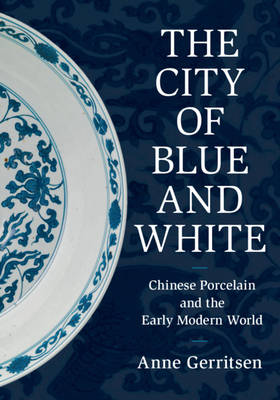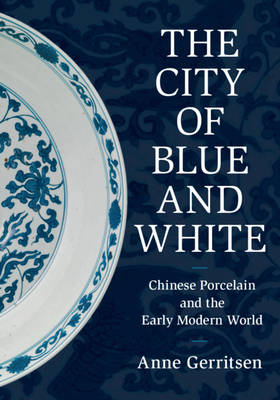
Door een staking bij bpost kan je online bestelling op dit moment iets langer onderweg zijn dan voorzien. Dringend iets nodig? Onze winkels ontvangen jou met open armen!
- Afhalen na 1 uur in een winkel met voorraad
- Gratis thuislevering in België vanaf € 30
- Ruim aanbod met 7 miljoen producten
Door een staking bij bpost kan je online bestelling op dit moment iets langer onderweg zijn dan voorzien. Dringend iets nodig? Onze winkels ontvangen jou met open armen!
- Afhalen na 1 uur in een winkel met voorraad
- Gratis thuislevering in België vanaf € 30
- Ruim aanbod met 7 miljoen producten
Zoeken
The City of Blue and White
Chinese Porcelain and the Early Modern World
Anne Gerritsen
Hardcover | Engels
€ 53,45
+ 106 punten
Omschrijving
We think of blue and white porcelain as the ultimate global commodity: throughout East and Southeast Asia, the Indian Ocean including the African coasts, the Americas and Europe, consumers desired Chinese porcelains. Many of these were made in the kilns in and surrounding Jingdezhen. Found in almost every part of the world, Jingdezhen's porcelains had a far-reaching impact on global consumption, which in turn shaped the local manufacturing processes. The imperial kilns of Jingdezhen produced ceramics for the court, while nearby private kilns manufactured for the global market. In this beautifully illustrated study, Anne Gerritsen asks how this kiln complex could manufacture such quality, quantity and variety. She explores how objects tell the story of the past, connecting texts with objects, objects with natural resources, and skilled hands with the shapes and designs they produced. Through the manufacture and consumption of Jingdezhen's porcelains, she argues, China participated in the early modern world.
Specificaties
Betrokkenen
- Auteur(s):
- Uitgeverij:
Inhoud
- Aantal bladzijden:
- 354
- Taal:
- Engels
Eigenschappen
- Productcode (EAN):
- 9781108499958
- Verschijningsdatum:
- 7/05/2020
- Uitvoering:
- Hardcover
- Formaat:
- Genaaid
- Afmetingen:
- 234 mm x 251 mm
- Gewicht:
- 861 g

Alleen bij Standaard Boekhandel
+ 106 punten op je klantenkaart van Standaard Boekhandel
Beoordelingen
We publiceren alleen reviews die voldoen aan de voorwaarden voor reviews. Bekijk onze voorwaarden voor reviews.











